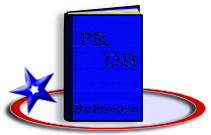
BASIC
ABORT
ASSIGNMENT
BOOLEAN
BRANCHING
BSD
COMPILE.TIME
CONSTANT
DIMENSION
DYNAMIC
EQUATE
EXECUTE
IO
MATH
NLS
SQL
STRING
SYSTEM
TABLE
TAPE
TBD
TRANSACTION
TRANSFORM
PROC
BRANCHING
BUFFER
EXECUTE
TCL
ANALYSIS
IO
SYSTEM
| E | Index: E L Symbol Idea Code | |
| EQU | This command is used to define literals. | |
| EQUATE | This command is used to define literals. | |
| L | Index: E L Symbol Idea Code | |
| LET | DEPRECIATED. Assignment command. | |
| Symbol | Index: E L Symbol Idea Code | |
| $DEFINE | Can be used like an EQUATE to define literals, or as a compiler switch. | |
| = | Symbol for equals (boolean test) or assignment. | |
| Idea | Index: E L Symbol Idea Code | |
| CONSTANTS | Constants are values which cannot change during the course of execution. | |
| VARIABLES | Variables are values which can change during the course of execution. | |
| Code | Index: E L Symbol Idea Code | |
| ANGLES | Example of Angle brackets. | |
| ASSIGNMENT | Example of Assignment handling | |
| DEFINE | This is how $DEFINE and its related commands work. | |
| EQUATE | This is how constants are created. | |
